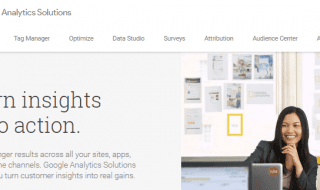
If you run a large organization, you have unique needs compared to small or medium-sized businesses. Your infrastructure and business processes are different, and you need enterprise solutions to optimize your work. Businesses all over are committing to digital transformations to do away with legacy systems and embrace automation in the workplace.
Outdated systems are often kept in use either because they serve a vital function to the business or because they would be expensive to replace. In the long run, however, more modern enterprise tools can perform their jobs better than legacy systems and reduce costs over time. Here are some enterprise tools with great scalability that can bring your business into the modern age.
Customer Relationship Management
Your customers are your most precious resource, and you’ll need an effective CRM solution to offer the best customer service possible and help your sales team pursue and connect with leads more effectively. CRM implementation starts with your contact center. Customers are busy people who expect convenience and may already be frustrated when they call in. Having an intelligent routing system cuts down on wait times and ensures customers are connected to the right agent for their call.
The modern call center lets customer contact agents through digital channels such as webchat, SMS, text, mobile apps, and more. With full omnichannel integration, you can even allow customers to seamlessly switch between communication methods, ensuring a convenient, personalized, and memorable customer journey. Automatic updates to customer information are shared with your sales team, and simple call recording makes quality management easy.
As you gather more customer data and feedback, you can quickly determine which aspects of your business need improving and act on your insights. This data also helps your salespeople close deals and pursue leads using proven methods.
Enterprise Search
While most people can use an ordinary search engine to find answers and solutions, large organizations need enterprise search to sort through petabytes of data and return relevant results to complex queries. Enterprise cloud search can conduct searches across multiple content platforms and utilize APIs to index large amounts of information for practically any source. Some solutions can even use data pipelines to simultaneously collect data from multiple sources in a process known as data ingestion, so you can get practically real-time results for even the most complicated searches.
Enterprise search is great for quickly collecting relevant data to help make business decisions, and it can even help your customers find more relevant results when they search your website. Deploying via cloud services also means you’ll receive automatic updates for all functions and security features, meaning you can always be sure of your data integrity.
Application Integration
No matter what kind of enterprise applications you’re running, they can’t be as effective as possible if they’re siloed (kept separate from each other). An application integration tool is necessary so that all your enterprise apps can communicate and share data with each other. Enterprise application integration saves your employees from having to manually transfer data from one application to the next, which is prone to errors due to potential mistakes with data recording and because different apps typically have different architecture. Connectors make your workflow more efficient and can let your applications work in new ways.
Since software as a service (SaaS) applications have become more popular, the need for integration tools is ever greater. An application program interface (API) and Event-Driven Architecture lets your SaaS applications be rapidly connected and disconnected as needed, automating many business processes and freeing up employees. In addition to boosting productivity, you can also integrate services used by your customers, enhancing their experiences even further.
Application integration can be customized manually between selected applications, or you can opt for an integration Platform as a Service (iPaaS), which is a simplified cloud-based solution with an automated integration process. Whatever you choose, it’s important to use a platform that offers you flexibility for the future.




